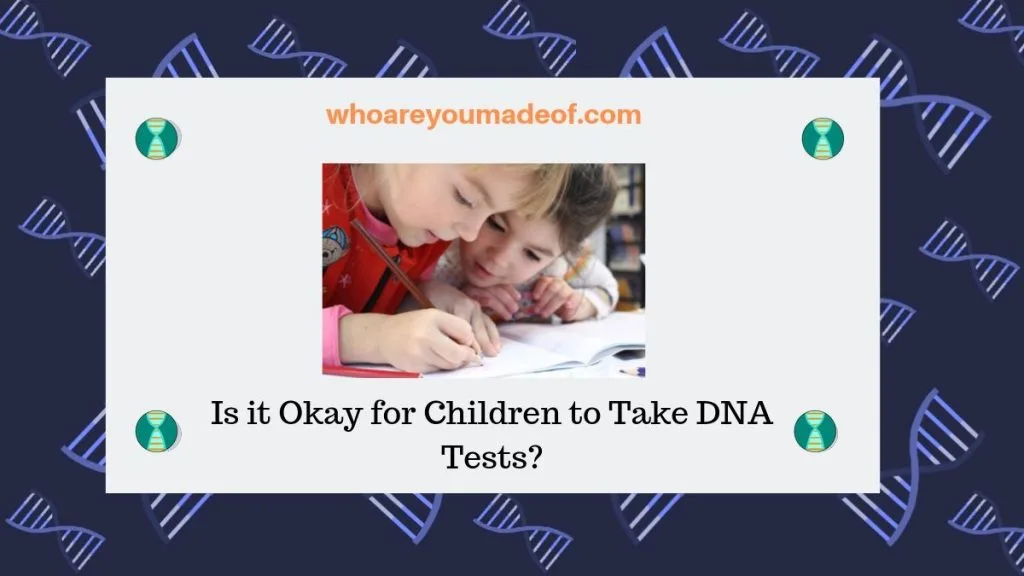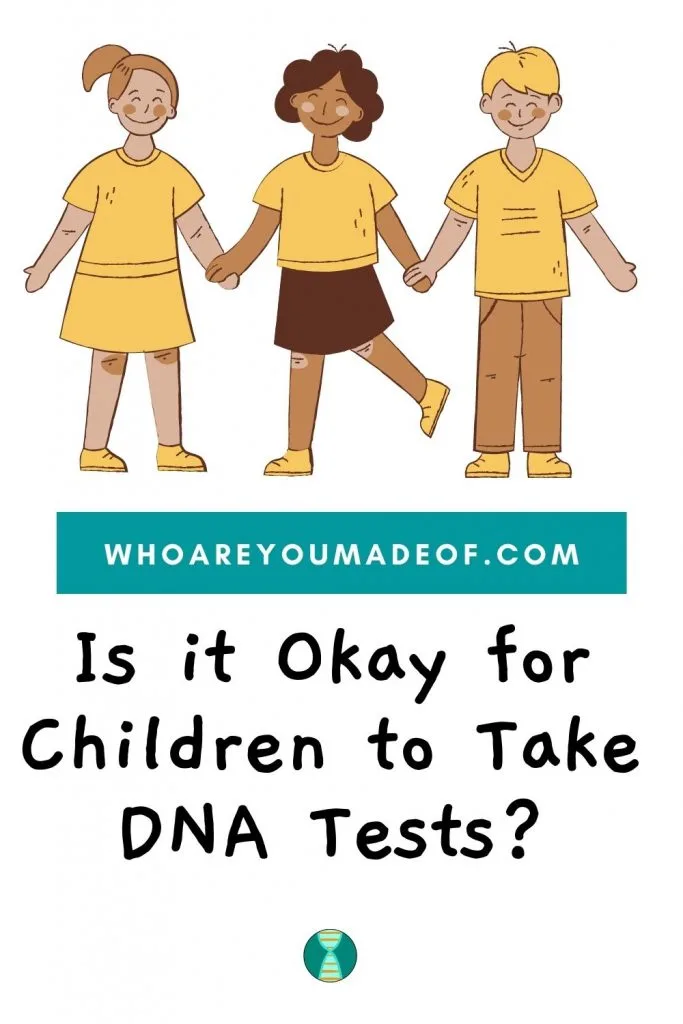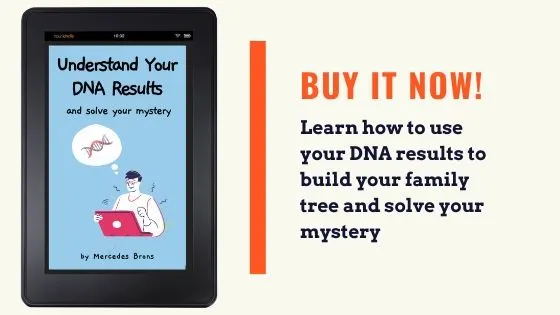As DNA testing for Ancestry has become more popular, so have questions about ethics and privacy for the test takers. Is it okay for children to take DNA tests?
Many parents wonder if it is safe, acceptable, or responsible to let their minor children participate in DNA testing to learn more about their roots. In this post, I will share my views, including ethical concerns, about allowing children to take DNA tests for fun or genealogical purposes.

My seven-year old daughter first asked me for a DNA testing kit when she was six. She sees me working on the computer, sometimes blogging but most of the time working on my Ancestry trees.
Even though both her father and I have done DNA tests and we won't learn anything new (that would help us with research) from her results, she still would love to take a DNA test. She wants to see her ethnicity results, which is the most common reason that people do DNA testing.
DNA testing can be a great way to help children learn about their cultural heritage, understand where they came from, and even learn about science and genetics, so I can completely understand why this question comes up periodically.
My husband and I haven't made an official decision on the subject, but we have done a lot of thinking and debating - and, to be honest, we are leaning towards "no", at least for the time being. That doesn't mean that this is the right choice for your family, however.
Below, I'll explain some of the issues that I've been pondering, as well as my view on how to weigh these factors in making your own decision.
Can children give consent for DNA testing?
In most situations, we generally don't view children as legally being able to give consent. The younger the child, the truer this statement.
We can all probably agree that there are some potential downsides to sending in a DNA sample and adding our DNA to various websites and databases. As adults, we are able to weigh the pros and cons and make an educated decision about whether or not to test our DNA.
In other words, we are able to weigh the small chance that something negative can happen against the potential gains that we might receive.
Naturally, we are able to give consent on behalf of our children for many things, and DNA testing is one of those things. I support the right of parents to make this decision, but I hope that it is made carefully, on a case-by-case basis, taking into consideration the age, maturity and needs of the child.
Can kids understand the implication of a DNA test?
It's hard enough to explain to our kids, even our teenagers, that everything that they do online has the chance of becoming a part of their permanent digital record. Can our kids really understand all of the potential consequences of DNA testing, including the "offline" ones?
Some of the questions that we discussed in relation to my young daughter doing a DNA test:
- Can she understand all of the ways in which her DNA information can be used? This includes her DNA information potentially being used by other family members (even distant relatives), previously unknown close family members trying to work out their relationship to our family, and even law enforcement in rare situations.
- Is she comfortable being contacted by DNA matches, and am I, as her parent, comfortable with this?
- Is she mature enough to process and handle her DNA results in a responsible manner? For example, am I concerned that she might share something from her DNA results in a social situation in a way that might be perceived as negative, or cause offense in some way?
- Is she old enough to understand reasons why privacy is valuable?
In my daughter's case, after thinking carefully about those questions, I realized that she is not old enough to really understand and deal with many situations that could arise from her doing a DNA test. Plus, since both of her parents have already done a test (my husband and myself), there would be little upside to her doing a test.
In her case, the benefits don't outweigh the risks.
As kids grow older, the scales may tip in favor of them doing a test. For example, my oldest daughter decided she wanted to do a DNA test when she was 17. She is my daughter from a previous marriage, and wanted to learn more about her father's ancestry.
She was close to turning 18, was a college student, and could understand as well as most adults what she was doing. I thought that in her case, DNA testing could provide more benefit than risk, and thus encouraged her to go through with her DNA testing.
Is the DNA test for my child, or is it really for me?
I have not encouraged my younger daughter to do a test, but I do sometimes wonder if she wants to do it because she wants to be involved in what I am doing. I know she loves me, and she wants to know more about my hobby.
So, even if she could understand all of the implications and I thought it was a good idea for her to test, does she really want to do it because she is interested, or because she thinks I might want her to do one?
I'm a huge supporter of DNA testing - I seriously love it so much. Doing a DNA test is one of the best decisions that I have made in the past several years for many reasons.
It's easy to get caught up in the DNA testing "test everyone you can" frenzy, but I don't want to pressure (directly or indirectly) my own family members, including my children, to do something that they don't want to do, aren't ready for, or isn't currently in their best interest.
How to know if DNA testing is right for my child
To summarize, in order to determine whether or not my children are "ready" to take a DNA test, I answered the following questions:
- Is my child old enough to understand what a DNA test really is?
- Does my child really want to do a test, or do they think I want them to?
- Can my child understand the likely and reasonable implications of DNA testing?
- Is my child mature enough to handle information that they learn about themselves?
- If I answered "no" to any of the above questions, do the potential benefits of testing outweigh the negative?
- Would it be better to wait until my child is older to revisit the idea of DNA testing?
Whether or not to test your child is completely up to you. I definitely don't judge other parents for letting their younger children take DNA tests, and this post is only to provide the perspective of a parent with a lot of experience in DNA and genealogy. I'm sure that you'll make the best decision for your family.

Conclusion
I hope that you enjoyed this post and that it gave you some details to consider when it comes to whether or not your child should be permitted to take a DNA test for ancestry. I wouldn't be surprised if this post evokes a strong reaction (either for or against what I say), and I'm looking forward to an enlightening and hopefully friendly discussion on this topic in the comments below.
Thank you for stopping by!

